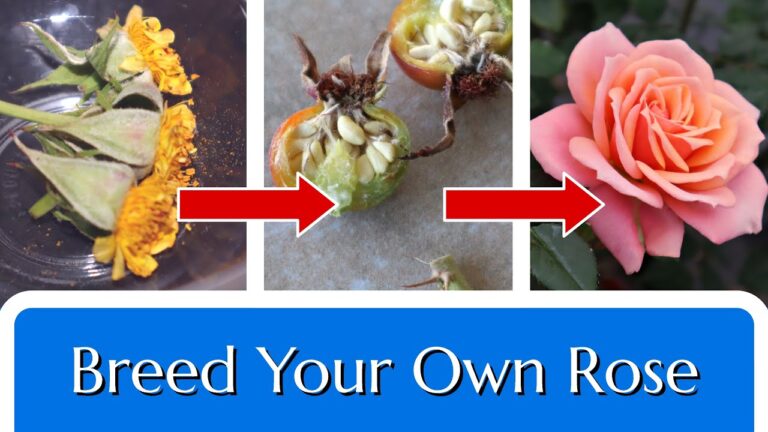The internet can be a wonderful resource for gardeners, offering tips and techniques from experts around the world. However, not all the advice you’ll find online holds up under scrutiny. In a recent video, Jason from Fraser Valley Rose Farm, a professional grower with years of experience, delves into the world of fake rose propagation videos that have gained surprising popularity on YouTube.
These videos, often created by channels with millions of views, claim to show simple, “magical” ways to propagate roses using items like turmeric, aloe vera, or even bananas. But as Jason explains, these methods not only defy basic plant science but can also mislead and discourage gardeners who attempt them.
Spotting Fake Propagation Techniques
In his video, Jason highlights a few particularly egregious examples of fake propagation methods. One featured channel demonstrates “growing roses from flower buds” by dipping freshly cut blooms into aloe vera before burying them in soil. After a supposed 18 days, the video shows the flowers miraculously sprouting roots.
To the trained eye, the deception is obvious. As Jason points out, flower parts are specialized structures that lack the ability to produce vegetative shoots or roots. The roots and shoots seen in these videos are likely glued or pinned onto the flowers, a form of stagecraft designed to fool viewers.
Another video shows rose seeds being harvested from fresh blooms—an impossibility, as seeds only form after the flower’s fruit, or hip, has fully matured. These faked results often include unnecessary steps like soaking plant parts in turmeric or wrapping them in banana peels, adding a pseudo-scientific flair to the process.
The Harm of Misinformation
While these videos may seem harmless, their impact can be more damaging than expected. Gardeners who attempt these methods are left frustrated and disillusioned when their efforts fail. Misinformation also undermines trust in online gardening content, making it harder for legitimate creators to reach their audience.
Jason also critiques YouTube’s role in amplifying these videos, noting that the platform removed the public dislike count—a valuable indicator of a video’s credibility. Without this feature, viewers are left with no clear way to discern fact from fiction.
Reliable Alternatives for Rose Propagation
For those looking to propagate roses successfully, Jason offers several reliable resources. His own videos on growing roses from cuttings or seeds provide step-by-step instructions grounded in real horticultural practices. Trusted creators like Mike Kincaid and The Rose Geek also share effective, science-based methods.
As Jason emphasizes, propagating plants doesn’t require magic ingredients or elaborate rituals. Success comes down to providing the right conditions—proper moisture, temperature, and time—for roots to develop naturally.
Conclusion
Fake propagation videos may dominate the views, but they can’t compete with the satisfaction of real, science-based gardening. By seeking out credible sources and relying on proven techniques, gardeners can achieve lasting success while avoiding the pitfalls of misinformation.



